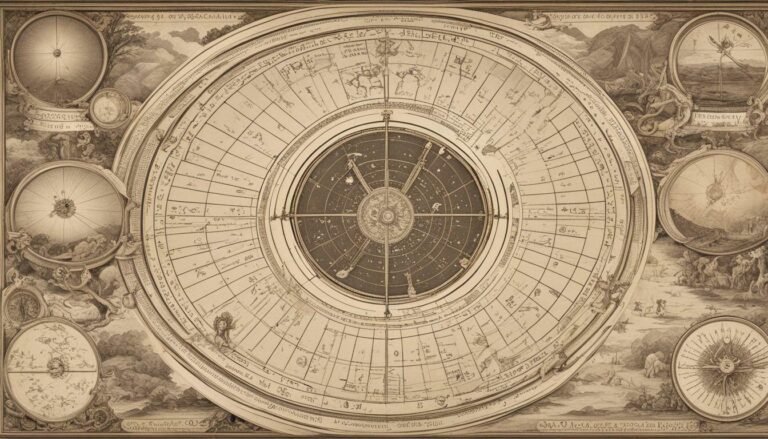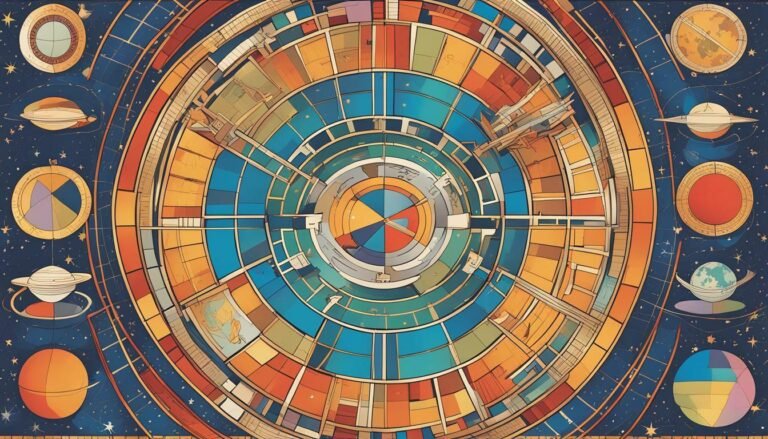Unveiling the Mystery: What is Descendant in Astrology?
Have you ever wondered how astrology can shed light on your relationships and interactions with others? One essential aspect of astrology that holds answers to these questions is the descendant. Understanding the descendant and its significance can help you gain valuable insights into your relationship patterns, attraction dynamics, and compatibility with others.
The descendant is one of the four angles in astrology that form the framework of a birth chart. It represents the cusp of the seventh house and is opposite to the ascendant, which represents the first house. While the ascendant signifies how we project ourselves to the world, the descendant represents how we relate to others.
The descendant’s placement and aspects in a birth chart can reveal much about our personality traits, values, and attitudes towards relationships. It can also provide insights into the kinds of people we attract and are attracted to, as well as the dynamics we seek in partnerships.
Key Takeaways:
- The descendant is one of the four angles in astrology that forms the framework of a birth chart
- The descendant represents the cusp of the seventh house and is opposite to the ascendant
- Understanding the descendant can provide insights into personality traits, attraction dynamics, and relationship patterns
Understanding the Descendant Sign in Astrology
Now that we have explored the concept of the descendant in astrology, let us delve deeper into the descendant sign and its significance. The descendant sign in astrology represents the qualities and traits we seek in our significant others and the qualities we project onto our partners. It is opposite to our ascendant sign, which represents our self-image and how we present ourselves to the world.
Understanding our descendant sign can help us gain insights into our relationship dynamics. For example, if your descendant is in the sign of Libra, you may seek balance, harmony, and partnership in relationships. On the other hand, if your descendant is in Scorpio, you may desire intense emotional connections and a sense of mystery in your partnerships.
The descendant sign can also contribute to our personality traits, especially in the context of our relationships. For instance, if your descendant is in Aries, you may be assertive, competitive, and passionate in your romantic relationships. Conversely, if your descendant is in Pisces, you may be compassionate, intuitive, and spiritual in your partnerships.
Ultimately, understanding your descendant sign can help you gain a deeper understanding of yourself and your relationship patterns. By recognizing the qualities you seek in a partner and the qualities you project onto others, you can navigate your relationships more consciously and effectively.
The Descendant in Astrology: Symbolism and Interpretation
The descendant, also known as the descendant sign, is an essential element in astrology that represents the sign that was setting on the western horizon at the moment of your birth. It is the opposite sign of your ascendant, and it reveals your relationship patterns and the people you attract into your life.
The descendant astrology symbol is represented by a horizontal line with a downward arrow pointing towards it, signifying the point where the sun sets in the west. This symbol represents the way you interact with others and how you form relationships.
The interpretation of the descendant in astrology is crucial as it provides insight into your relationship dynamics. The sign on your descendant represents the qualities you seek in a partner, the type of people you are attracted to, and how you deal with conflict in relationships. For instance, if your descendant is in Aries, you may look for someone who is adventurous, independent, and passionate.
Astrologers interpret the descendant in natal charts by examining its placement in relation to the other planets and the ascendant. The planets in aspect to your descendant can provide information about the type of people you attract or the challenges you may face in relationships. For instance, if your descendant is in aspect to Venus, you may attract partners who are artistic, sensual, and romantic.
The Descendant Astrology Interpretation
Interpreting the descendant in astrology can provide valuable insights into your relationship patterns and compatibility. As the descendant represents the qualities you seek in a partner, understanding this aspect in your birth chart can help you recognize your ideal partner and navigate your relationships more effectively.
For instance, if your descendant is in Scorpio, you may seek intensity, passion, and emotional depth in your relationships. You may also tend to attract partners who are mysterious, secretive, and intense.
Remember, the descendant sign represents the type of person you seek to complete you. Recognizing and embodying these qualities within yourself can attract the right people into your life.
Furthermore, the descendant can provide insight into the type of relationships you tend to attract. For example, if your descendant is in the water signs (Cancer, Scorpio, Pisces), you may attract emotional, nurturing partners who seek deep emotional connections.
Overall, understanding the symbolism and interpretation of the descendant in astrology can provide valuable insights into your relationship patterns and attraction dynamics. Incorporating this aspect of astrology into your self-discovery journey can enhance your self-awareness and help you navigate your relationships more consciously.
Exploring Your Descendant in the Astrology Chart
If you want to gain a deeper understanding of how the descendant in astrology influences your relationships, you need to know how to locate and interpret it in your astrology chart. The descendant in the astrology chart is marked by a line that crosses the horizontal line of the chart, opposite the ascendant.
The descendant represents the qualities that you seek in a partner, and it also reveals your behaviors and attitudes in close relationships. To understand the significance of the descendant, you need to examine the placement and aspects of the planet or zodiac sign that occupies the descendant.
If the planet occupying the descendant is Venus, for example, you are likely to be attracted to people who embody traits of beauty, harmony, and diplomacy. On the other hand, if Mars occupies the descendant, you may be drawn to partners who are confident, assertive, and energetic.
| Descendant Placement | Interpretation |
|---|---|
| First House | You value partners who embody your sense of self and identity. |
| Second House | You seek security and stability in relationships. |
| Third House | You look for intellectual stimulation and communication in relationships. |
| Fourth House | You seek partners who embody your family values and emotional depth. |
| Fifth House | You are attracted to partners who share your creative interests. |
| Sixth House | You seek partners who are supportive of your daily routines and health habits. |
| Seventh House | You value partnerships and seek companionship in life. |
| Eighth House | You seek deep, transformative, and sometimes complex relationships. |
| Ninth House | You look for partners who share your philosophical and spiritual values. |
| Tenth House | You value partners who support your career and public image. |
| Eleventh House | You seek partners who share your social and humanitarian values. |
| Twelfth House | You are attracted to partners who embody your spiritual and artistic aspirations. |
Additionally, analyzing the aspects of the descendant can provide further insights into your relationship patterns. If the descendant forms a challenging aspect with other planets or points in your chart, such as a square or opposition, you may encounter difficulties in finding suitable partners or navigating relationship dynamics.
On the other hand, harmonious aspects like trines and sextiles suggest that your personal qualities and relationship needs are well-aligned, leading to fulfilling partnerships.
By exploring your descendant in the astrology chart, you can gain a deeper understanding of your relationship patterns and preferences. This knowledge can provide insights into your love life and help you navigate your personal connections more consciously.
The Influence of the Descendant on Relationships
Now that you understand what the descendant in astrology is and its significance, let’s explore how it affects your relationships.
The descendant in your astrology chart represents the qualities you seek in a partner and the types of relationships you are likely to attract. It can also influence your attraction to certain personality traits and the qualities you admire in others.
For example, if your descendant is in Aries, you might be drawn to bold, confident, and assertive partners. On the other hand, if your descendant is in Pisces, you might be attracted to empathetic, creative, and spiritual individuals.
Additionally, the descendant can influence your compatibility with others. If your descendant sign aligns well with your partner’s Ascendant sign (the sign rising on their horizon at the time of their birth), you are more likely to have a harmonious and fulfilling relationship. However, if your descendant and their Ascendant are in conflicting signs, you might experience more challenges in your partnership.
By understanding the influence of the descendant in astrology, you can gain insights into your relationship patterns and dynamics. This can help you navigate your personal connections more effectively and cultivate more fulfilling partnerships.
The Descendant in Synastry: Compatibility and Relationship Analysis
If you’re interested in analyzing the compatibility of your relationships, synastry is the branch of astrology that can help. The descendant plays a significant role in synastry, as it represents the qualities we seek in our partnerships.
When examining the descendant in synastry, it’s important to consider the houses and signs involved. The descendant sign of one person will fall into the opposite sign of their partner’s ascendant, bringing complementary qualities to the relationship.
For example, if your descendant is in Leo, you may seek a partner with Aquarius rising, as this brings balance to your relationship through the combination of fire (Leo) and air (Aquarius) elements.
Additionally, it’s essential to consider the aspects between the descendant and other planets in the synastry chart. Harmonious aspects indicate compatibility, while challenging aspects may require more work to maintain a healthy relationship.
In some cases, the descendant can also indicate what we do not want in a relationship. For example, a person with their descendant in Scorpio may be wary of partners who display possessive or manipulative behavior.
Overall, analyzing the descendant in synastry can provide valuable insights into the dynamics of a relationship. By understanding the descendant’s influence on our attraction, compatibility, and relationship patterns, we can navigate our partnerships more effectively.
The Descendant in Astrology: Conclusion
Congratulations! You have gained a solid understanding of the mysterious descendant in astrology and how it relates to relationships and interactions with others. You now know that your descendant sign plays a crucial role in shaping your personality traits, compatibility, attraction dynamics, and partnership preferences.
By analyzing your natal chart, you can locate your descendant and interpret its placement and aspects to gain valuable insights into your relationship patterns. You can also use this knowledge to navigate your relationships more consciously and enhance your self-awareness.
Embracing Astrology to Enhance Self-Awareness
Remember, astrology is not a magic wand that will solve all your problems. Instead, it is a tool for self-reflection and personal growth. By embracing astrology and using it as a guide, you can gain a deeper understanding of yourself and your place in the universe. You can also learn how to harness your strengths and overcome your weaknesses to live a more fulfilling life.
So, keep exploring astrology and enjoy the journey. You never know what insights and revelations you may uncover!
FAQ
Q: What is the descendant in astrology?
A: The descendant in astrology represents the opposite sign of the ascendant. It signifies the qualities and traits we look for in partnerships and relationships.
Q: How does the descendant influence our lives?
A: The descendant influences our relationships and interactions with others. It determines our compatibility, attraction, and the dynamics we seek in partnerships.
Q: How can I locate my descendant in my astrology chart?
A: To locate your descendant in your astrology chart, look for the sign opposite your ascendant. It is usually located in the seventh house of the natal chart.
Q: What does the placement and aspects of the descendant signify?
A: The placement and aspects of the descendant provide insights into our relationship patterns and dynamics. They can indicate the qualities we seek in a partner and the challenges we may face in relationships.
Q: How does the descendant affect relationship compatibility?
A: The descendant plays a significant role in relationship compatibility. It determines the qualities and traits we are attracted to in a partner, and how well we complement each other in a romantic or personal relationship.
Q: How can understanding the descendant improve our relationships?
A: Understanding the descendant can help us navigate our relationships more effectively. By knowing our relationship patterns and the dynamics we seek, we can make conscious choices and foster healthier and more fulfilling connections.
Q: How does the descendant influence synastry charts?
A: In synastry charts, the descendant interacts with other astrological factors to determine relationship compatibility. It provides insights into the dynamics and challenges that may arise in specific partnerships.





